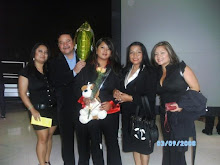Learning from the environmental influences is continuous and deeply rooted in an individual’s mind. Vygotsky’s key theoretical points seem to revolve around this common theme. Environmental factors such as family structure, socio-economic status, language, symbols, norms, and rules of behavior all teach a child how to cope, survive, and thrive in a particular setting. (Ormrod, J., et al, 2009)
Traditional students are provided with the ideal tools to learn problem-solving skills that they encounter in their roles as students and citizens in varied social settings and circumstances. Learners have personal interaction with instructors and fellow students. The more that zone of proximal development is enriched with new and positive settings, the more one expands that zone in productive and effective instruction through guidance and positive role modeling (Ormrod, 2009). For the student, this role modeling may come from leaders of community organizations such as private businesses and public entities as well as non-profit organizations.
I think that online university settings are examples of those environmental influences that provide choices to students for their academic success. I believe that online instruction, when effectively administered, does become an influence for higher learning within the student’s “zone of proximal development”.
Elearning provides the learner those lessons that can enhance personal awareness, understanding and self-realization as well as the transfer of these skills into the professional setting. However, online instruction does not provide the opportunity for personal contact and communication among classmates. I think much is lost without personal communications, but I think that increased focus on subject matter is gained.
During the past several months I have been a member of this online social circle, in this and a previous course. The communications have been meaningful and helpful to my understanding theories relating to organizational change, leadership and culture as well as learning theories. Most of my reflections have included personal insights shared by my classmates and professor.
In this context, I can say that online learning with its discussions format has given opportunity for interpersonal communications in a social setting. It includes reciprocal teaching, peer review, and problem-based instruction (Kim, 2001) along with required readings, viewings and interactions. Online instruction has had a positive impact on the enhancement of my own learning process.
Kim, B. (2001). Social constructivism. In M. Orey (Ed.), Emerging perspectives on learning, teaching, and technology. http://projects.coe.uga.edu/epltt/index.php?title=Social_Constructivism
Video: Ormrod, J., “Theory of Social Cognitive Development” (2010)
Ormrod, J., Schunk, D., & Gredler, M. (2009). Learning theories and instruction (Laureate custom edition). New York: Pearson.
Wednesday, January 27, 2010
Subscribe to:
Post Comments (Atom)




No comments:
Post a Comment